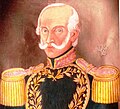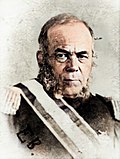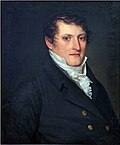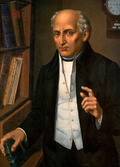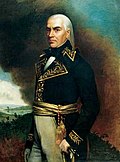Top Qs
Timeline
Chat
Perspective
Libertadores
Principal leaders of the Hispanic American wars of independence from Spain From Wikipedia, the free encyclopedia
Remove ads
Libertadores (Spanish pronunciation: [liβeɾtaˈðoɾes] ⓘ, "Liberators") were the principal leaders of the Spanish American wars of independence from Spain and of the movement in support of Brazilian independence from Portugal. They are named that way in contrast with the Conquistadores ("Conquerors").[1]

They were largely local-born men of European descent (criollos), in most cases part of the bourgeoisie and with military training in the motherland, who were influenced by liberalism and led colonial subjects in their struggle for independence against the metropole.
Remove ads
List of libertadores
Summarize
Perspective
Hispanic America
Brazil
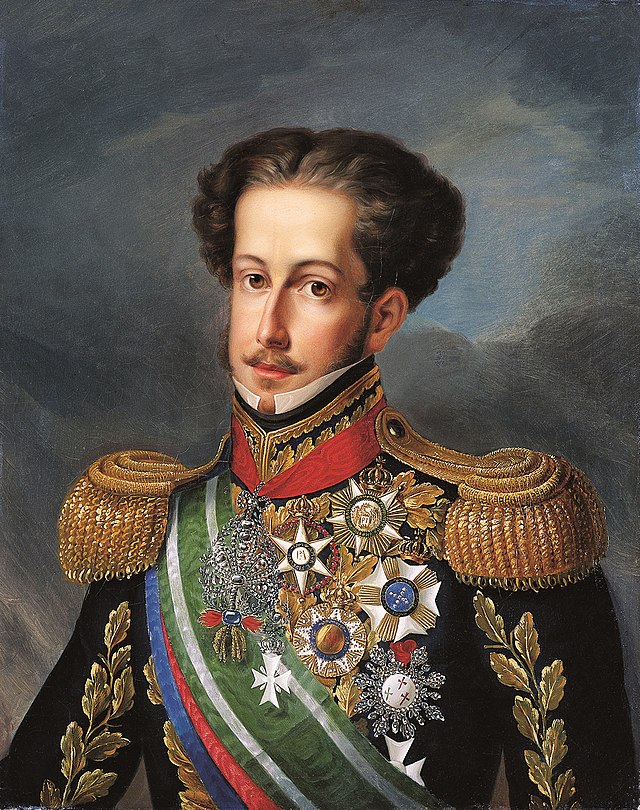
Pedro I of Brazil became known as "o Libertador" ("the Liberator") in Brazil for his role in the country's independence.[15] Sporadically, the term has also been applied to other figures such as José Bonifacio (known as the "patriarch for independence"), Maria Leopoldina de Austria, and Joaquim Gonçalves Ledo.[16]
Philippines
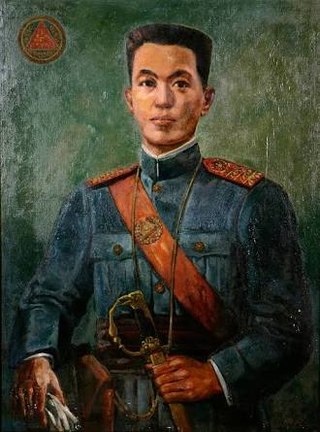
Emilio Aguinaldo, the first Filipino President and Generalissimo who liberated the Philippines from the Spanish Empire in 1898, is widely recognized as "El Libertador de la Patria" (The Liberator of the Homeland)[17][18]
Remove ads
Legacy
The flags of Venezuela, Colombia and Ecuador follow Francisco de Miranda's design of 1806. Also, Bolivia was named after Símon Bolívar, who in turn was president of Colombia, Peru, Bolivia and twice of Venezuela. San Martín served as "President Protector" of Peru.
In what today is part of Mexico, Guatemala, El Salvador, Honduras, Nicaragua and Costa Rica, Agustín de Iturbide, a military leader revolted against the Viceroyalty of New Spain, founded an independent Mexican Empire where he ascended as Emperor Agustín I.
The names of libertadores are used all over South America to name anything from towns and places to institutions and sports clubs. Also, the most prestigious international club football competition in South America is named the Copa Libertadores in their honour.
Remove ads
See also
Bibliography
- Robert Harvey. Liberators: Latin America's Struggle for Independence. Woodstock, The Overlook Press, 2000. ISBN 1-58567-072-3
- James Higgins (editor). The Emancipation of Peru: British Eyewitness Accounts, 2014. Online at https://sites.google.com/site/jhemanperu
- Marion Lansing. Liberators and Heroes of South America. Boston, L. C. Page & Co., 1940.
- Irene Nicholson. The Liberators: A Study of Independence Movements in Spanish America. New York, Frederick A. Praeger, 1968.
- Pigna, Felipe (2010). Libertadores de América. Buenos Aires: Planeta. ISBN 978-950-49-2420-3.
Remove ads
References
External links
Wikiwand - on
Seamless Wikipedia browsing. On steroids.
Remove ads

